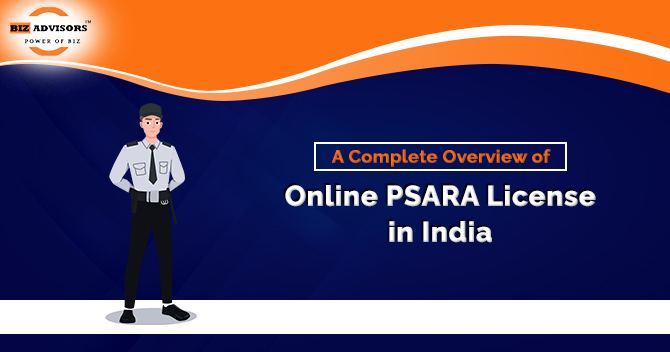The broad discipline of dispute advisory functions as a vital compass in the bewildering terrain of conflicts and disputes. Disagreements and legal problems are an unavoidable aspect of business, law, and everyday life in today’s society, and conflict advisory professionals are essential in assisting people, organisations, and governments to navigate these rough waters. Dispute advising professionals apply their specialised expertise and abilities to resolve disputes swiftly and fairly, whether it be by solving financial puzzles in a company dispute, mediating difficult family conflicts, or giving expert testimony in court.
What Methods are There for Resolving Disputes?
Methods for resolving disputes and conflicts between parties are called dispute resolution procedures or mechanisms. Different dispute resolution strategies may be required by different circumstances. Here are some popular strategies for resolving disputes:
- Negotiation
A dispute’s sides will communicate directly and informally through negotiation. Without the assistance of a third party, they collaborate to discover a solution that they can both live with.
- Mediation:
In mediation, a mediator—a third party who is impartial and assists disputing parties in communicating and negotiating—is used. The mediator facilitates a voluntary agreement between the parties.
- Arbitration:
An impartial third party, known as an arbitrator, hears the arguments and evidence put out by both sides through the more formal process of arbitration and then renders a binding ruling that is comparable to a court verdict.
- Litigation:
Litigation is the conventional legal procedure in which parties argue their case in front of a judge or jury in a court of law. Based on the relevant legislation and the provided evidence, a decision is made.
- Collaborative Law:
Each party must hire a lawyer who has been trained in collaborative law procedures under collaborative law. Without exception, all parties agree to settle their differences out of court and cooperate to do so.
- ODR: Online Dispute Resolution
ODR is a process for settling disputes through the use of online resources and technologies. It is frequently employed in cases of contract difficulties, e-commerce disputes, or conflicts in virtual settings.
Types of Disputes
- Contractual Conflicts:
When parties to a contract disagree over the terms, performance, or fulfilment of contractual obligations, these disputes arise.
- Property Conflicts:
Conflicts over ownership, boundaries, land usage, and real estate issues are all examples of property disputes.
- Family Conflicts:
Conflicts over family companies or assets, divorce, and child custody are just a few examples of family conflicts.
- Employment Conflicts:
Wrongful termination, discrimination, harassment, salary disputes, and breaches of employment contracts are some of the concerns that come up in employment disputes.
- Commercial Conflicts:
These issues might be about contracts, alliances, mergers, purchases, or intellectual property rights and they frequently occur in the corporate sector.
- Cases involving intellectual property
Intellectual property issues include disagreements over patents, trademarks, copyrights, and trade secrets as well as allegations of infringement.
- Consumer Conflicts:
Consumer conflicts arise when customers and businesses disagree about product flaws, deceptive advertising, or unfair business practises.
- Construction Conflicts:
These disagreements concern construction-related problems such delays, cost overruns, flaws, or disagreements over project specifications.
Regulation and Compliance Concerning Dispute Advisory
In the sphere of dispute advisory, regulatory and compliance concerns are of the utmost importance. To maintain the integrity of the conflict resolution procedure and to secure the protection of all parties, professionals in this sector are required to abide by stringent norms and compliance standards.
Discretion and privacy:
Dispute advisors frequently have access to private data. To protect the privacy of their clients and the information shared during the dispute resolution process, they are required to adhere to confidentiality and privacy laws and regulations.
Legal and Moral Requirements:
Experts and solicitors serving as dispute advisors are subject to ethical and legal requirements. They must abide by the moral and professional standards set forth by the relevant trade organisations.
Inconsistency of Interest:
Conflicts of interest must be avoided at all costs. Any potential conflicts must be disclosed by dispute advisors, who must also take the necessary precautions to lessen them. Failure to do so could damage the process’s reputation as fair and impartial.
Know Your Customer (KYC) and Anti-Money Laundering (AML) Regulations
To avoid money laundering and the financing of illegal activities, dispute advisors in financial disputes, particularly those involving foreign transactions, may need to adhere to AML and KYC[1] rules.
Reporting Requirements:
There may be regulations to report certain conflicts or financial transactions to regulatory authorities, depending on the jurisdiction and the nature of the issue.
Privacy and data protection regulations:
When managing sensitive and personal data, dispute advisors are required to abide by data protection and privacy rules. This is crucial in international conflicts as data may travel across borders.
International Trade and Sanctions:
In order to avoid legal problems, it is essential to comply with trade restrictions and sanctions imposed by countries or other international entities.
Rules for Expert Witness Testimony:
The norms and guidelines for expert testimony in court must be followed by dispute advisors who are testifying as expert witnesses. They must maintain the highest standards of professionalism and accuracy in their statements because they might be subjected to cross-examination.
Ethical Considerations in Dispute Advisory
Given that experts are tasked with resolving conflicts and disputes impartially, fairly, and in accordance with ethical norms, ethical issues are crucial in the field of dispute advisory.
- Neutrality and Impartiality: Throughout the dispute resolution procedure, dispute counsellors must remain neutral and unbiased. They should not support any of the parties involved and should stay away from any financial or personal conflicts of interest that can taint their objectivity.
- Confidentiality: It’s crucial to keep tight confidentiality. Unless required by law or with the full consent of the parties involved, dispute advisors should not divulge any confidential information gathered during the process.
- Inconsistency of Interest: Conflicts of interest must be quickly identified and disclosed by dispute advisors. In the event of a conflict, they should take the necessary steps to control or lessen it, which may include withdrawing from the case.
- Knowledge and Skills: Advisors should only take on issues that are within their purview of knowledge and ability. Giving advice or rendering services that are outside the scope of their expertise might result in unethical behaviour and cause harm to the parties involved.
Conclusion – Dispute Advisory
Dispute advice is a pillar in the field of conflict resolution, providing a compass of ethics, techniques, and principles to lead people, organisations, and communities through the maze of conflicts and disagreements. The guardians of justice, objectivity, and moral integrity are dispute advisers, whether the situation calls for the delicate art of negotiation, the regimented processes of arbitration, or the unbiased knowledge of mediation. These specialists play a crucial role in paving the way for resolution, ensuring that justice is done, and restoring harmony in a world characterised by numerous conflicts and difficult legal issues. The ability of dispute advisory to settle disputes and its dedication to upholding the essential principles of integrity, impartiality, and respect are what will continue to be significant.
How BizAdvisors ITES Private Limited can help you?
In the intricate tapestry of human interactions, disputes and conflicts are inevitable threads. Dispute advisory serves as the weaver, carefully and skillfully guiding these threads toward resolution and understanding. Our legal experts at BizAdvisors.io tend to provide a robust support system in the context of assisting individuals to easily obtain information about Dispute Advisory.
Whether in the corporate boardroom, the courtroom, or the community, dispute advisory professionals provide a beacon of hope and a path forward. In a world where disputes can often overshadow harmony, the importance of these experts cannot be overstated. Individuals can take any advice or help from our legal consultants at BizAdvisors.io in the context of understanding about Dispute Resolution.
Read our article:A Complete Overview of Franchise Agreement
 9559179325
9559179325 9559179325
9559179325




